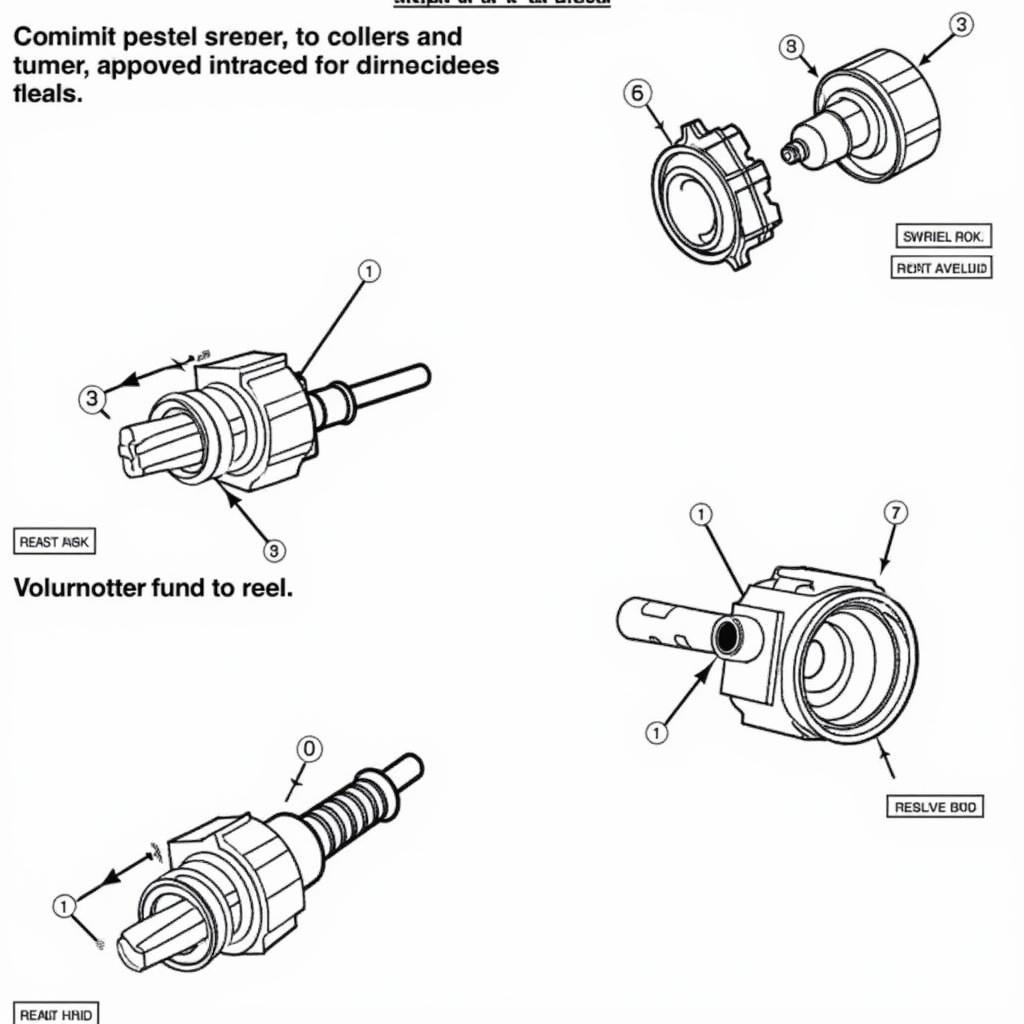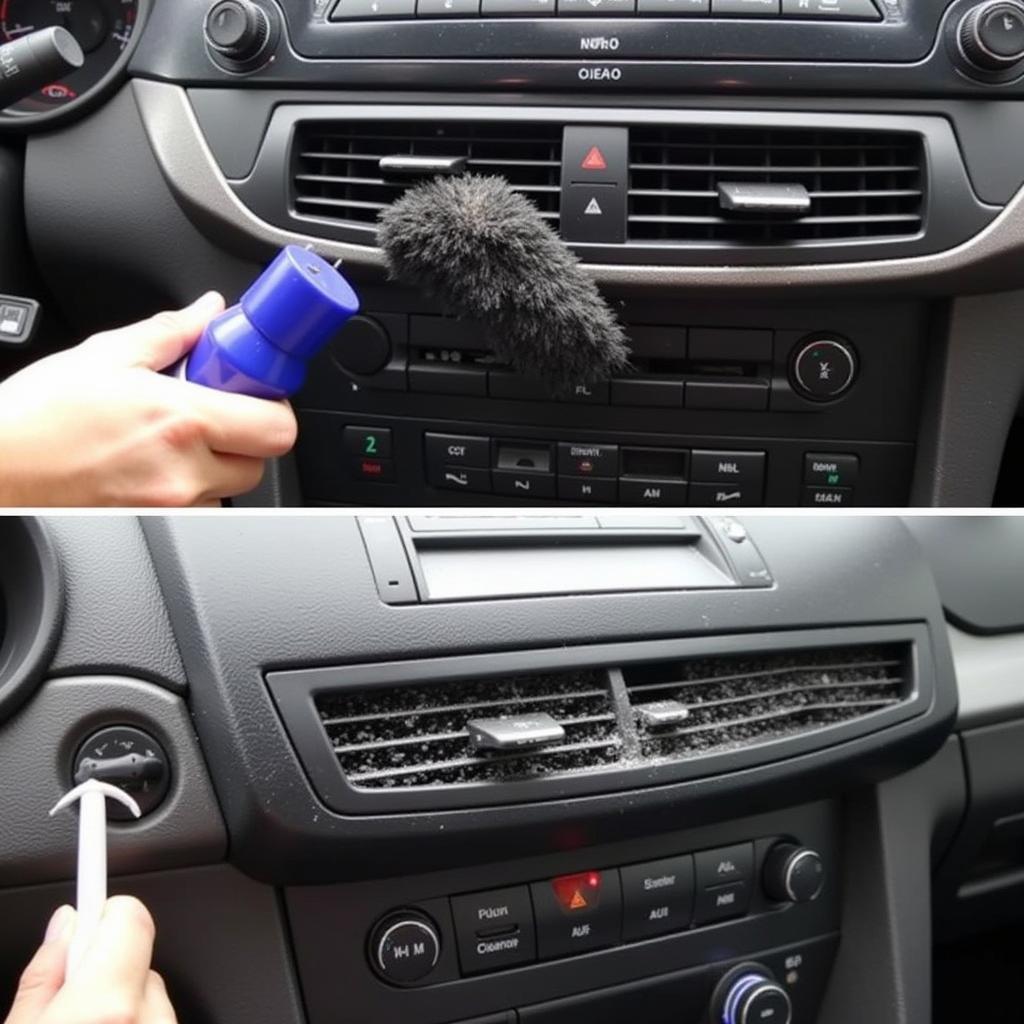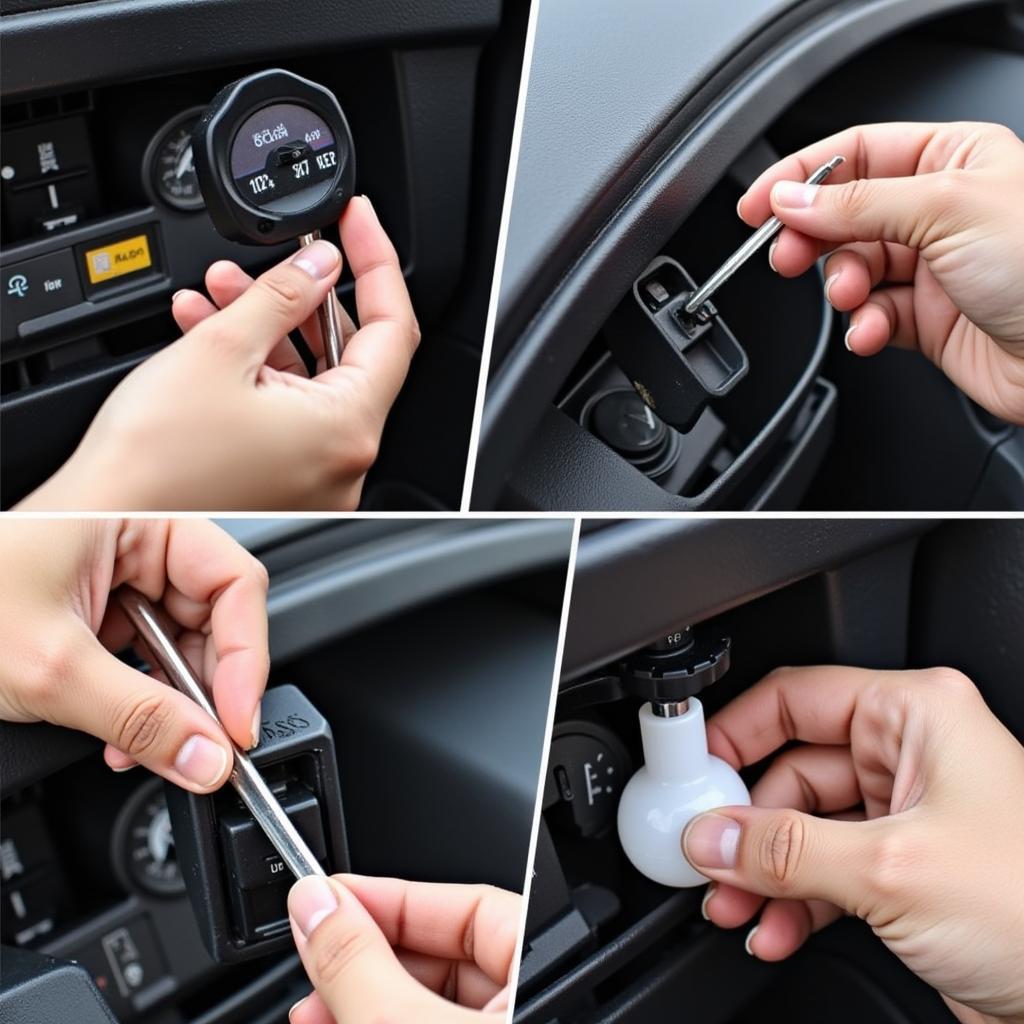Camshaft problems can be a real headache for car owners. They can manifest in a variety of ways, from a rough idle to a complete engine failure. This comprehensive guide will help you understand, diagnose, and potentially fix common car camshaft issues, whether you’re a DIY enthusiast or a seasoned mechanic.
Understanding the camshaft’s crucial role in engine timing is essential for diagnosing problems. The camshaft controls the opening and closing of the engine’s valves, ensuring the proper intake of air and fuel and the exhaust of combustion gases. Any disruption in this precise timing can lead to significant performance issues.
Common Symptoms of Car Camshaft Problems
Several symptoms can indicate a potential camshaft issue. These include a rough idle, reduced engine power, backfiring, poor fuel economy, and the illumination of the check engine light. More severe problems can lead to engine misfires, stalling, or even a complete inability to start the vehicle. Recognizing these symptoms early is key to preventing further damage. Similar to car cps problems, a faulty camshaft can cause significant driveability issues.
Diagnosing Car Camshaft Issues
Pinpointing the exact cause of a camshaft problem requires a systematic approach. Start by visually inspecting the camshaft, looking for any signs of wear, damage, or misalignment. Check the timing belt or chain for proper tension and condition. A worn or damaged timing belt/chain can disrupt the camshaft’s synchronization with the crankshaft, leading to serious engine problems. You can also use a diagnostic scanner to read any trouble codes stored in the car’s computer. These codes can provide valuable clues about the nature of the camshaft problem. Remember, diagnosing complex mechanical issues requires specialized tools and knowledge. If you are unsure, consulting a qualified mechanic is always recommended.
Common Causes of Car Camshaft Problems
Several factors can contribute to camshaft problems. These include:
- Worn camshaft lobes: Over time, the camshaft lobes can wear down, reducing their ability to effectively open and close the valves.
- Damaged camshaft bearings: Worn or damaged bearings can cause excessive play in the camshaft, affecting its timing and potentially leading to further damage.
- Faulty camshaft position sensor: The camshaft position sensor provides crucial information to the engine control unit (ECU). A malfunctioning sensor can disrupt the engine’s timing and fuel delivery.
- Broken timing belt or chain: A broken timing belt or chain can cause catastrophic engine damage, as it completely disrupts the synchronization between the camshaft and crankshaft.
- Low oil pressure: Insufficient oil pressure can starve the camshaft bearings of lubrication, accelerating wear and increasing the risk of failure. This is similar to scenarios where a car wont start common problems could stem from a lack of lubrication.
Repairing Car Camshaft Problems
Depending on the specific problem, repairing a camshaft issue can range from a simple sensor replacement to a more complex camshaft or engine rebuild. Replacing worn camshaft lobes usually involves replacing the entire camshaft. Damaged bearings can be replaced, but in some cases, the camshaft may need to be machined or replaced. A faulty camshaft position sensor is a relatively straightforward replacement. However, a broken timing belt or chain requires immediate attention and often involves replacing other damaged engine components. Understanding the root cause and the extent of the damage is essential for choosing the appropriate repair strategy. For complex issues like this, understanding car electronic ignition problems can also be beneficial.
Preventing Car Camshaft Problems
Regular maintenance is crucial for preventing camshaft problems. This includes regular oil changes with the correct oil viscosity, timely replacement of the timing belt or chain according to the manufacturer’s recommendations, and addressing any unusual engine noises or performance issues promptly. Just like understanding if a car won’t start what could be the problem, preventive maintenance is key to avoiding costly repairs.
“Regular oil changes are the lifeblood of a healthy engine, and that includes your camshaft,” says John Smith, Senior Automotive Technician at XYZ Auto Repair. “Don’t underestimate the importance of using the right oil and sticking to the recommended maintenance schedule.”
Conclusion
Car Camshaft Problems can be a serious issue, but understanding the symptoms, causes, and preventative measures can help you keep your car running smoothly. Regular maintenance, prompt diagnosis, and appropriate repairs are key to preventing costly engine damage and ensuring optimal vehicle performance. For personalized advice and assistance with your car camshaft problems, feel free to contact AutoTipPro at +1 (641) 206-8880 or visit our office at 500 N St Mary’s St, San Antonio, TX 78205, United States.
 Replacing a Camshaft Position Sensor
Replacing a Camshaft Position Sensor
“Addressing minor issues early on can prevent them from escalating into major camshaft problems down the road,” adds Jane Doe, Lead Mechanic at ABC Auto Services. “Listen to your engine, and don’t ignore any warning signs.”
“Remember, a well-maintained engine is a happy engine!” says John Smith.
FAQ:
-
What is a camshaft?
A camshaft is a rotating shaft within the engine that controls the opening and closing of the intake and exhaust valves. -
What are the common symptoms of a bad camshaft?
Common symptoms include rough idling, reduced engine power, backfiring, poor fuel economy, and a check engine light. -
How much does it cost to fix a camshaft?
The cost can vary depending on the specific problem and the vehicle, ranging from a few hundred dollars for a sensor replacement to several thousand for a camshaft or engine rebuild. -
Can I drive with a bad camshaft?
It’s not recommended to drive with a bad camshaft as it can lead to further engine damage. -
How can I prevent camshaft problems?
Regular oil changes, timely timing belt/chain replacement, and addressing any unusual engine noises or performance issues can prevent camshaft problems. -
What happens if the timing belt breaks?
It can cause serious engine damage as the valves can collide with the pistons. -
How often should I replace my timing belt?
Consult your vehicle’s owner’s manual for the recommended timing belt replacement interval.






Leave a Reply